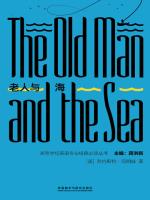A Meaningful Ending
After reading the Old Man and the Sea, a world-renowned book written by Hemingway, I find the ending of this novel meaningful.
This novel tells the story of Santiago, an old fisherman in Cuba in the middle of the 20th century. He fished at sea for 84 days without catching anything. On the 85th day, he ventured to the deep-sea that he had never been to. He found a large marlin, but it dragged the boat towards the sea. After two days and two nights, he finally killed the marlin with great effort and tied it to the side of the boat. On the way home, the marlin was attacked by sharks five times. Santiago went through a lot of hardships to kill these sharks one by one. As he returned to the port, the marlin was left with a huge white skeleton frame. When a group of tourists looked at the skeleton and mistook it for a shark, Santiago fell asleep under Manolin’s eyes and dreamed of the lions again.
Judging by the ending, did Santiago succeed or fail?
If only from the fact that Santiago captured the big marlin and defeated all sharks, it was a success, which showed his indestructible spirit. It was a large marlin with a length of 18 feet and a weight of 1500 pounds. It dragged the boat for two whole days, cutting Santiago's hand, making him tired, and even being admired and pitied by him. Even though Santiago had no water, no food, no weapons, no assistants, and his left hand was cramped, he never gave up from beginning to end. With his rich experience and skilled skills, he fought with the marlin and eventually killed it with all his strength. Faced with the swarms of sharks, though exhausted, he was determined to fight with them to death, using all the weapons in his hands to beat and kill the oncoming sharks. The fight with these fish reflected Santiago's tenacious perseverance and indomitable spirit. It was certainly a success for him.
But from the fact that the marlin only left a skeleton, Santiago seemed to have failed. So if Hemingway wanted to praise the good spirit of Santiago, why not create a happy ending that everyone yearns for, but adopt a tragic ending?
The first reason is the creation background of this novel. This novel is based on real events. Hemingway had developed a strong friendship with the archetypal character. This tragic ending is a respect for the original story. And Hemingway participated in World War I and World War II and witnessed the liberation of Paris and the division within the Cuban Communist Party in 1945. After seeing death and suffering in many ways, his view of life and death and disillusionment were amplified in his writing.
Additionally, Hemingway wanted to show that people can also fail, which will not fade the glory of people who never gives up. After three days of exhausted fighting at sea, Santiago hauled back to shore a giant frame of fish bones. Life is like this story, and many people are the same as Santiago. Their lives are filled with difficulties and challenges, and things that are hard to get always go in a flash. Although Santiago went all out but finally got the result of failure, he set up an immortal spiritual monument for us, which made us deeply realize the contradiction between the limitation of human life and the infinite pursuit of human, and let us learn to face life bravely and tenaciously. In Hemingway's view, life is an unwinnable struggle. He hoped to enlighten us through Santiago's constant pursuit of fighting with fate that we should be optimistic and never bow to the fate. Even if the outcome is failure, we ought to accept it calmly and keep moving forward. “A man can be destroyed but not defeated.”
At the end of the story, there are three points worth noting. First, the two tourists mistook the bone for a shark, to some extent implying that Santiago's behavior and spirit were rarely recognized and understood. This is another layer of tragedy. People always judge heroes by success or failure. In fact, despite his failure, he is still a hero, a proud hero. Second, the story ends with "The old man was dreaming about the lions". The lion is a symbol of strength and courage. Compared with other images, the lion has no tenderness and passion of the sea, no greed and ferocity of sharks, and no perseverance and patience of the marlin. But the lion has its own unique confidence and dignity, which is awe inspiring. Although Santiago failed, he still maintained his dignity and courage, and had the air of a winner, that is, the air of the lion, the king of beasts. Third, Manolin told the old man that he would go to sea with him in the future. It meant that Santiago's spirit of indestructibility and never giving up would be passed down from generation to generation.
The ending of The Old Man and the Sea seems to be a distressing tragedy, but it is this tragic effect that makes the story more real and more profound, leaving readers with a deeper impression and thinking. This ending is quite meaningful, which gives me endless aftertaste.




 京公网安备 11010802032529号
京公网安备 11010802032529号